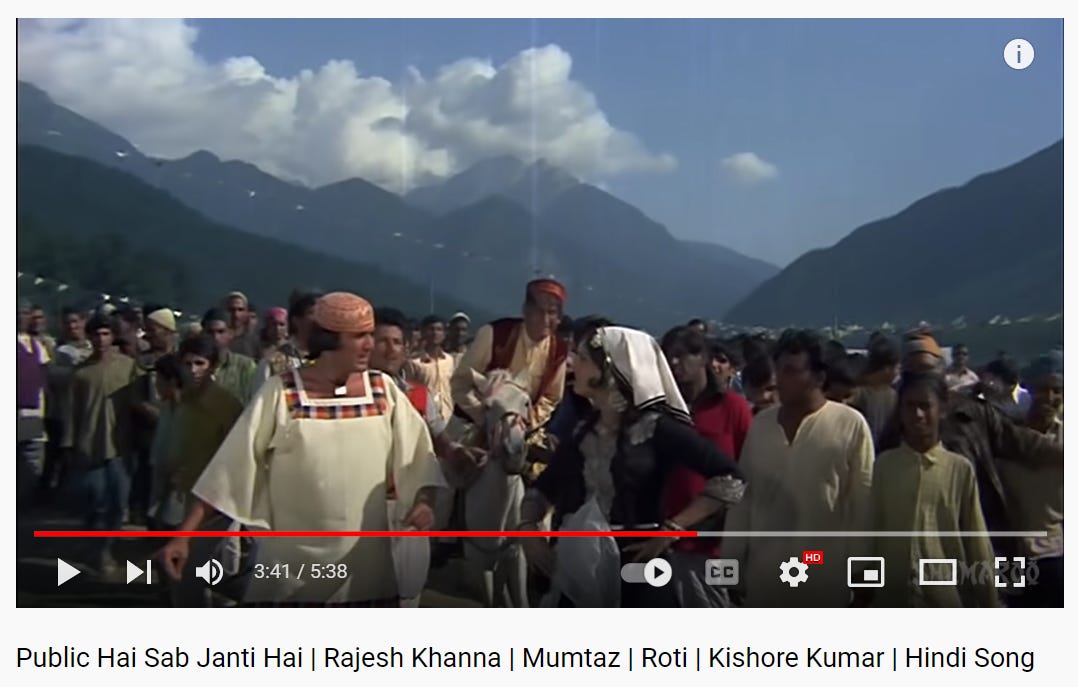Independence Day: Being Responsible - Not Proud - As Indians
Finding sanity in nationalist India
Five years back, on Independence Day, I wrote this for the Wire. Reproducing it here considering that the bigoted nationalist context in which I wrote the essay has only gotten worse and uglier.
Am I proud to be an Indian? The fact is that neither I nor any other Indian can take personal credit for having been born here. After all, nationality is essentially accidental. Nevertheless, as we grew up we were instructed to feel proud to be Indians. We were also told to feel proud of India, the civilization which ‘gifted’ complex mathematics to the world and “knew” plastic surgery even before the world knew plastic. But do we have any right to feel proud for what persons living in today’s South Asia — who themselves would mostly consider us as complete strangers — did centuries back, especially when we have squandered our inheritance?
When I went to the United States for higher studies in 2014 (as a 28-year-old), I wasn’t sure what effect the crossover would have on my outlook towards India, especially since the national pride I had passively absorbed since childhood had been tempered by the maturity of my mid-20s. But I was aware that for many in the Indian diaspora, living outside India reinforces such pride. Some begin sprinkling random ‘facts’ about the ‘greatness’ of India in conversations with non-Indians. Some even start looking down upon the culture and people of the nation where they were welcomed (quite like the good old bauji from DDLJ). But though I was uncertain what effect America would have on my Indianness, I knew I was eager to just talk about ‘my country’ with anyone curious.
During such conversations with non-Indian students, I became aware of how national pride makes one almost blind to the deficiencies of the nation, and makes one almost always exaggerate its strengths. For example many Americans ask their Indian friends about ‘the caste system’, and I realized I could either give the stock ‘proud Indian’ response of ‘there is no caste in “modern” India’, or could honestly convey how caste remains a strong social and political phenomenon in much of India despite some partly successful efforts to make it less relevant. I feel happy to report I went with the latter option. Whether conversations with non-Indians focused on Kashmir or the Buddha or ancient Indian eroticism, I made sure to choose my words well, preface responses with caveats, provide as balanced a perspective as I could, and request them to also talk to more Indians and South Asians.
In other words, as I let go of national pride, its place came to be filled by a sense of responsibility. I realized that the accident of being born in India has conferred on me a crucial responsibility, that of being an inheritor of everything the idea of India encompasses, and of being an honest transmitter of that idea. I began feeling responsible, rather than proud, as an Indian. And responsibility meant a willingness to acknowledge the negative aspects of my history and culture, and to address the the current shortcomings of India.
The other day a friend who works abroad told me he felt sympathetic to demands for banning beef in India since “we Indians consider cows as gods”. I told him that there are many Muslims, Christians, adivasis and Hindus themselves who do not in fact believe the cow to be divine — I, for one, would rather live in a world where actual human beings and their lives are considered sacred, than of so-called sacred animals — and who consume beef. I asked him why he was not including those millions of Indians in his definition of India and Indians but he would not budge. It is not a coincidence that “proud” Indians tend to have a very narrow understanding of India, one that is often restricted to the small part of India that they grew up seeing and feeling attached to (which most often is the privileged, upper-caste context, as most of the “proud” Indians who wield influence in mainstream public discourse belong to that category). But when one feels responsible as an Indian, one tends to be more inclusive and tolerant of the country’s multiple cultures and peoples.
While some may argue that it is possible to be ‘proud and responsible at the same time’, pride is too personal and egoistical to allow for the nuance that responsible citizenship entails. Besides, when we teach kids or convince ourselves to feel proud of India and its ancient ‘glorious’ past, we sow the seeds of complacency. It makes one so obsessed with past ‘greatness’ that current dismal failures are forgotten or ignored. These recent cartoons made by some of India’s bravest artists today, for example, make this point very clear.
This Independence Day, then, let us teach our kids to feel responsible, not proud, as Indians. Let us kindle within young Indians a strong desire to work for a better present and future, as against the ‘proud Indian’ who merely dreams of resurrecting some vague ‘golden age’ from the past.
[Postscript: By the way, I am old enough to remember an India where we, as the public (or the aam janata), were sane enough to not look up to politicians and mantri-santris as messiahs. We even got big-shot corrupt politicians condemned and arrested (e.g., Suresh Kalmadi). Those are indeed progressive actions which had a bearing on the present and the future, that I think one can feel genuinely proud of. Today, we as the public have become so servile and idiotic, that such collective public action and thought for the collective good — as against the drama of thali bajao and har ghar tiranga — seems impossible. An absolutely tragic state of affairs.]






